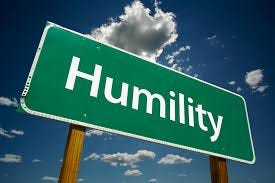By Ethan Plen (standing in for Gadiel Janet)
Parshat Beha’alotecha is one of the most packed Parshiot in the Torah. After many events and commands mentioned throughout the Parsha, we hear about the incident with Miriam and Aharon in which they speak negatively about Moshe, their brother.
וַיֹּאמְר֗וּ הֲרַ֤ק אַךְ־בְּמֹשֶׁה֙ דִּבֶּ֣ר ה’ הֲלֹ֖א גַּם־בָּ֣נוּ דִבֵּ֑ר וַיִּשְׁמַ֖ע ה’׃
They said, “Has Hashem spoken only through Moshe? Has [God] not spoken through us as well?” Hashem heard it.
Rashi explains that their issue was that since Har Sinai, Moshe had separated from his wife. They were prophets too and had not been told by God to separate from their spouses. A prophet is not required to, and generally is not allowed to, separate from his family. Why did Moshe think he was different?
When Hashem hears this, He summons them to the Mishkan and explains to them the difference between their levels of prophecy vs Moshe’s level and why this meant that Moshe had to leave his wife. God is explaining to them that Moshe didn’t betray his wife but rather God requires that the one who has to bring Torah to the whole Jewish nation has to be, more than a family man, but the national leader. It is not a demand for all prophets but rather just for one prophet with a very particular job.
Before God explains the situation though, the Torah gives us a fascinating statement.
וְהָאִ֥ישׁ מֹשֶׁ֖ה עָנָ֣ו מְאֹ֑ד מִכֹּל֙ הָֽאָדָ֔ם אֲשֶׁ֖ר עַל־פְּנֵ֥י הָאֲדָמָֽה׃ {ס}
Now Moshe himself was very humble, more so than any other human being on earth.
Obviously, the point of this statement is to clarify that this whole incident has nothing to do with Moshe’s own honour but rather is a defence of God’s Will and his appointed leader. Although, the strange part of this is that Moshe is the one who wrote this line into the Torah. God may have dictated to him but, nonetheless, Moshe still wrote down that he is the most humble person to have ever lived. Surely, this is exactly the opposite of humility?
The question and challenge is clearer in the Gemara at the very end of Masechet Sotah.
מִשֶּׁמֵּת רַבִּי בָּטְלָה עֲנָוָה וְיִרְאַת חֵטְא. אֲמַר לֵיהּ רַב יוֹסֵף לְתַנָּא: לָא תִּיתְנֵי עֲנָוָה, דְּאִיכָּא אֲנָא. אֲמַר לֵיהּ רַב נַחְמָן לְתַנָּא: לָא תִּיתְנֵי יִרְאַת חֵטְא, דְּאִיכָּא אֲנָא.
The final line of the mishna states that from the time when Rabbi Yehuda HaNasi died, humility and fear of sin ceased. Rav Yosef said to the tanna who reviewed the mishna: Do not teach that humility ceased, for there is still one who is humble, namely me. Rav Naḥman similarly said to the tanna who reviewed the mishna: Do not teach that fear of sin ceased, for there is still one who fears sin, namely me.
Surely, if you are going around to people and telling them not to worry because humility lives on in you, then you missed the point of humility?
The Orchot Tzadikim (an anonymous book of character traits from about 800 years ago) explains exactly what humility is:
The root of modesty is that he shall consider, while he is at peace and quiet, healthy and rich, that the Creator, Blessed be He, has done much good to him, and that he is undeserving of all that God has given him. And he should think about the greatness of God and the exaltation of His glory, and should consider, "What am I?
Humility doesn’t mean putting yourself down and having low self esteem. Rather, in order to have humility you must understand the kindness that Hashem has done to you to achieve whatever you have achieved in life. Humility means knowing your strengths and thanking Hashem for them.
With this new definition, Moshe and Rav Yosef both make sense. They aren’t “breaking humility” but rather understanding their positions in the world. Moshe is clarifying his humility to explain that, like we said above, the punishment for Miriam had nothing to do with ensuring his own ego but rather it was a justification for God’s leader. Rav Yosef, similarly, was saying that although Rabbi Yehuda is no longer around to ensure humility, he would stand up to fill the role because that is what God requires of him. This is what humility is meant to be. Using this ability our Tefillot should be answered when we too are humble.



